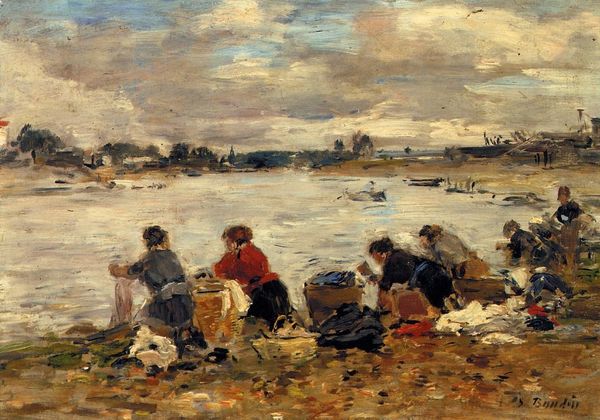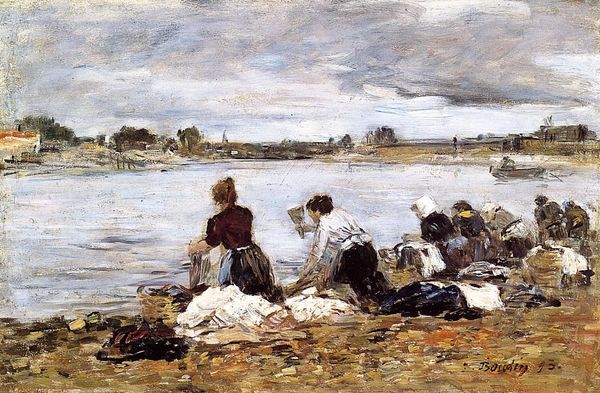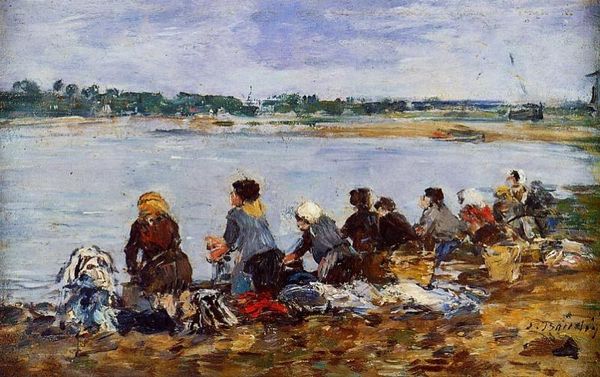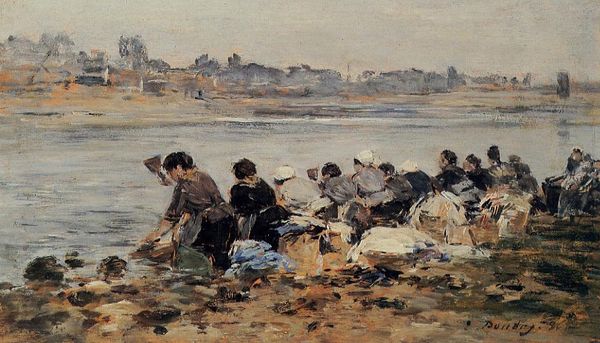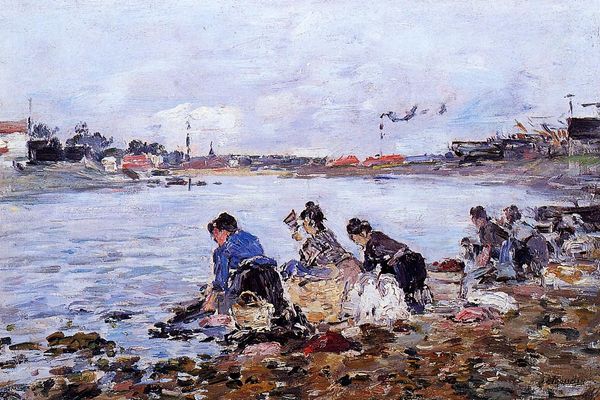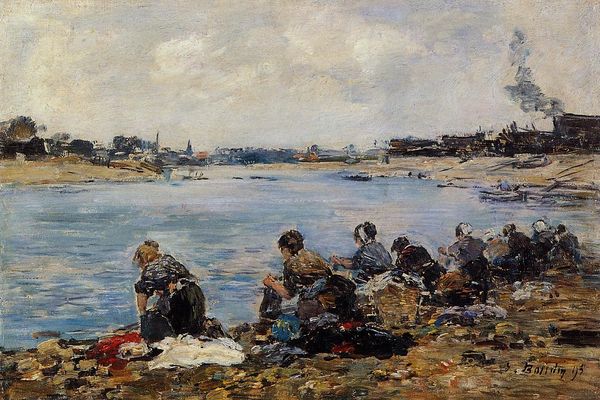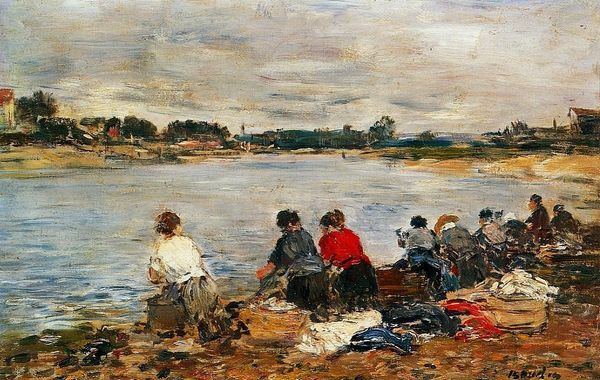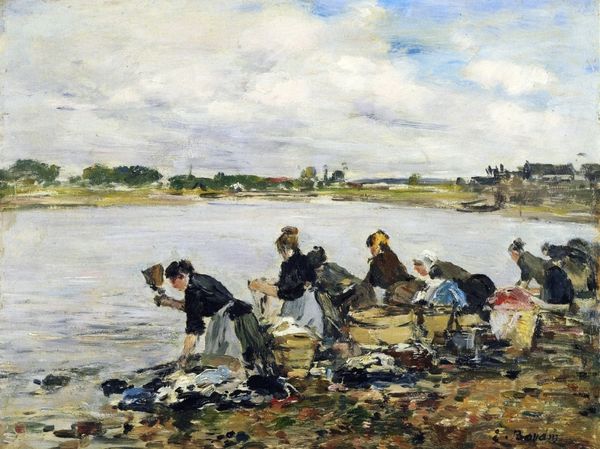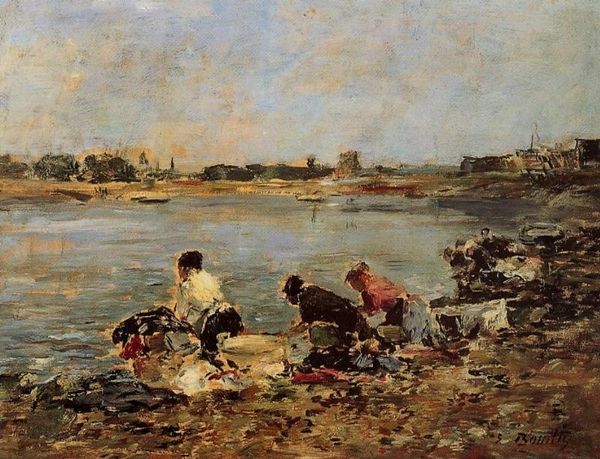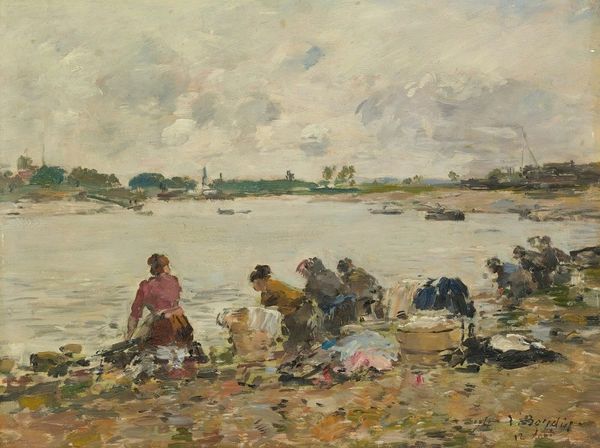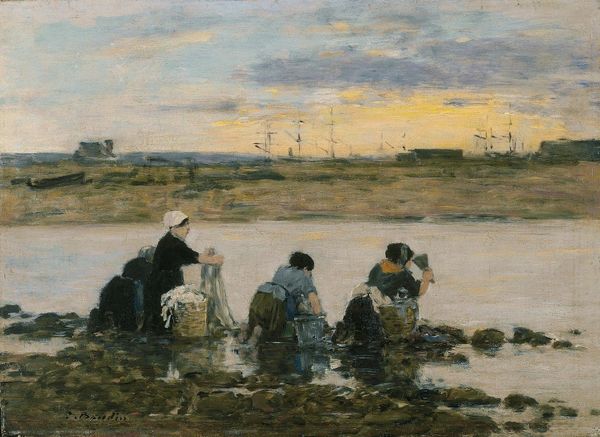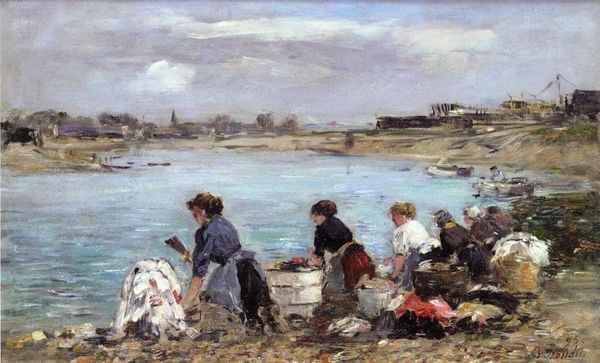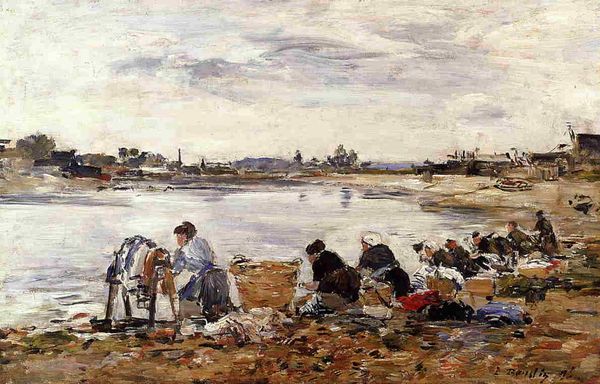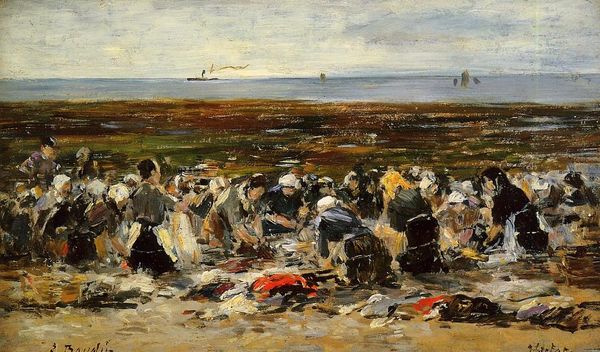
painting, plein-air, oil-paint
#
painting
#
impressionism
#
plein-air
#
oil-paint
#
landscape
#
river
#
impressionist landscape
#
oil painting
#
painting painterly
#
genre-painting
#
realism
Dimensions: 24 x 35 cm
Copyright: Public domain
Curator: Eugène Boudin's "Laundresses on the banks of Touques," painted in 1884, depicts a group of women diligently working at the river's edge. Editor: The instant reaction? Weariness, and something terribly familiar… My grandmother washed our clothes in the river when I was a boy. Curator: It's interesting to think about that familiarity in terms of artistic labor too, and consider plein-air painting itself, and the portability it necessitates—bringing supplies to the subject. The painting, in its impressionistic style, romanticizes to an extent, the raw physical effort it took these laundresses to clean clothes. Editor: The painterly handling definitely softens it all, doesn't it? Transforms work into light, into an atmospheric kind of grace. Though there’s an honesty in how matter-of-factly Boudin renders their postures—the hunch of shoulders, bent backs… a sort of visual empathy that transcends romanticism. The dirt and grime feels so immediate I can almost smell it. Curator: Right, it highlights a specific type of female labor from the time, reflecting on the social realities of that community through this task that straddles the line between domestic and public life. The soap and water necessary for cleanliness coming from resources they access, manage, and work with together. Editor: And the communal aspect is lovely; laundry day as shared burden and shared…gossip? Perhaps even a fleeting sense of freedom? See the river becoming a mirror reflecting fleeting emotions of companionship and a common task Curator: I am more so moved to reflect on the broader context. How images like this feed into notions of labor, class and gender from Boudin’s era, but it’s not that simple. He uses painting to elevates the everyday realities of labour… and through its material qualities – paint, canvas, brushstrokes, we can see its complexity and its enduring legacy. Editor: I get it… but to me, the enduring power isn’t political – it's visceral. That ache in my back echoes down generations. Curator: Exactly. I will not fail to agree with that. Editor: Ultimately it connects back to shared, fundamental human experience. Which, in turn, is maybe not so apolitical after all, huh?
Comments
No comments
Be the first to comment and join the conversation on the ultimate creative platform.
